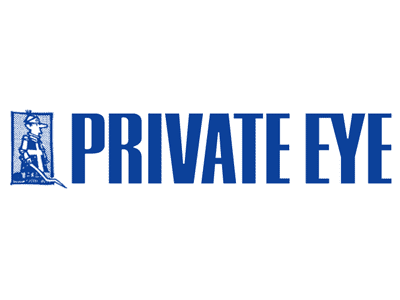The UK benefits system can be complicated at the best of times. It has been constantly evolving in recent years as successive Governments implement changes. But these issues should not detract from a simple fact. Depending on your personal circumstances, you might be entitled to assistance.
In short, the benefits system exists to provide practical help and financial support for those who are unemployed and looking for work. It also provides people with assistance if their earnings are low, if they have a disability, are bringing up children, are retired, care for someone or are ill.
Some of the most common benefits to our community include:
Employment and Support Allowance (ESA)
Employment and Support Allowance (ESA) is a benefit for people who have limited capability for work due to an illness or disability and are not in receipt of Statuary Sick Pay. You must be over 16 years old and under State Pension age. Similar to Jobseeker’s Allowance there is Income Related ESA which is means tested and Contribution Based ESA which is non means tested and dependent on your National Insurance Contributions.
Income Support
This benefit is a means tested income replacement benefit and is available to you if you are 1 of the following, a carer, pregnant or a lone parent of a child under 5 years old.
Housing Benefit
Housing Benefit is available to assist with rental costs for people who are on a low income. You can be employed or unemployed. This benefit is means tested and takes into consideration income and capital.
Council Tax Support/Reduction
This benefit is administered by your local Council and designed to assist people with their Council Tax bill if they are on a low income. You can be employed or unemployed. This benefit can vary depending on where you live. It is means tested and takes into consideration your income and capital. It is available to people who live in rental properties and to home owners.
Support with Mortgage Interest (SMI)
If you are a home owner and on a low income you may be eligible for assistance towards interest on your mortgage payments and loans that have been taken out for certain home improvements and repairs. In order to be eligible for SMI you will need to make a successful claim for one of the following: Income Based Jobseeker’s Allowance, Income Related Employment and Support Allowance, Income Support, Pension Credit or Universal Credit.
Tax Credits
There are two types of Tax Credits, Working Tax Credit and Child Tax Credit.
Child Tax Credit
Child Tax Credit is a benefit to assist with the costs of bringing up a child. You need to be responsible for a child and in receipt of a low income. You do not need to be working to eligible. Eligibility takes into consideration your work, how many children you have, when they were born and if they have a disability.
Working Tax Credit
Working Tax Credit is a benefit that is available to people who work and are on a low income. Eligibility takes into consideration how many hours of paid work you do, if you have a disability, if you have children and any childcare costs that are provided by approved childcare services.
Universal Credit
Universal Credit has been rolled out to most places in the UK and is the benefit most new claimants for Income related Employment and Support Allowance, Income based Jobseeker’s Allowance, Child Tax Credit, Working Tax Credit and Income support will now receive.
Personal Independence Payment (PIP)
Personal Independence Payment (PIP) is a benefit for people who are between 16 and 64 years old who due to an illness or disability have additional care needs. This is a non means tested benefit and therefore income and capital is ignored. There are 2 parts to this benefit, the daily living component and the mobility component. This benefit could increase your income anywhere between £22.65 and £145.35 a week. Claiming this benefit can lead to entitlement or increased entitlement to other means tested benefits.
Disability Living Allowance (DLA)
Disability Living Allowance (DLA) is a benefit for children who have additional care or mobility needs. It has 2 components, the personal care component and the mobility component. Your child must be under 16 years old to claim with additional age rules for the mobility component. This benefit is non means tested.
Attendance Allowance
This benefit is for people who are over 65 who are either physically or mentally disabled and require either assistance or supervision with their personal care needs or require supervision or support to ensure that they are safe.
It is available to people who live on their own or with others and is not dependent on whether the assistance required is being given. It is a non means tested benefit and therefore income and capital is ignored.
If you are in receipt of this benefit it can lead to entitlement or increased entitlement to means tested benefits. This benefit could increase you income by either £57.30 a week if you have either day time or night time needs, or £85.60 a day if you have both and can lead to entitlement or increased entitlement to some means tested benefits.
Carer’s Allowance
This benefit is available for people who provide care of more than 35 hours a week to someone who has an illness or disability. The person that you care for has to be in receipt of Attendance Allowance, the middle or higher rate of the care component for Disability Living Allowance or the Daily Living element of Personal Independence Payment. The person claiming Carer’s Allowance is not able to earn more the £120 per week and the benefit is paid at £64.60 a week.
Pension Credit
Pension Credit is a means tested benefit for people who are on a low income who have reached Pension Credit age. This benefit tops up your weekly income to £163.00 a week if you are single and £248.80 a week for a couple. Claiming this benefit can also lead to entitlement or increased entitlement to other means tested benefits.
Cold weather payment
This benefit is available if the average temperate in your area is recorded as, or forecast to be, zero degrees Celsius or below for 7 consecutive days. In order to be eligible cold weather payment, you will need to make a successful claim for one of the following: Income Based Jobseeker’s Allowance, Income Related Employment and Support Allowance, Pension Credit, Income Support or Universal Credit.
Winter fuel payment
This annual payment is made to people over state pension age to help them pay their heating bills. This payment is usually made automatically between November and December if you are eligible and you get a state pension.
Last Updated on




